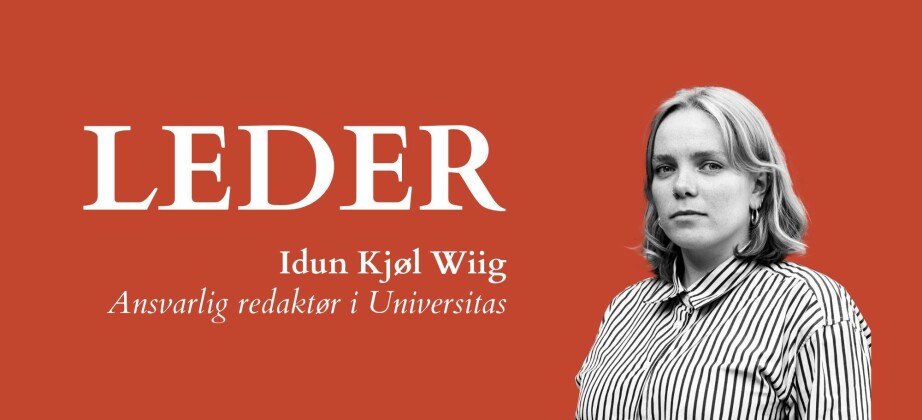Large Credit Achievement Results in Fewer Students
Due to the Quality Reform of Higher Education in Norway the University records good profits on increased credit achievement, but the authorities cover the extra costs by cutting number of students.
The Quality Reform has resulted in larger credit achievement. In the autumn of 2001 an average student at the University of Oslo (UiO) achieved 14.49 credits. Credits have been rising ever since, and by the autumn of 2004 an average student achieved 17.75 credits. This constitutes an increase of 18.7 per cent. The corresponding increase on a national basis is 17.3 per cent. However, the number of students has decreased during the same period.
«That credit achievement has increased is positive, but the downside is that this resulted in cutting number of students,» Studiedirektør, student director, at UiO Monica Bakken says.
683 cuts – NOK 13.3 million saved
Universities and university colleges are eligible for profits in terms of credit achievement pursuant to the funding model of the Quality Reform with a retrospective effect of two years. I.e. UiO was likely to receive funds for credits achieved in 2003 and 2004. However, in 2005 UiO has not only benefited from larger credit achievement but also been advised by the Ministry of Education and Research (UFD) to cut 683 students from the «cheapest» courses, amounting to NOK 13.3 million. This cut will be taken into effect from the autumn of 2005. Most cuts will affect the Faculty of Humanities and the Faculty of Social Sciences. On a national basis 4000 cuts will be made.
«Basically, what happened was that we achieved more than the Ministry considered to be fortunate,» Bakken says.
She believes that the problem is due to confusion over responsibility between UFD and the Ministry of Finance (FD). The latter tries to set terms as to the actual amount of credits that can be achieved per year.
«Gutted by the Government
«UFD was instructed to make cuts in accordance with the Government Budget, and they felt that it was better to cut number of students rather than funding per student. This seems reasonable, but the total of 4000 cuts fits perfectly well with credits achieved per student,» leader of Norsk Studentunion (NSU), the national union of students in Norway, Jørn Henriksen says. He is not very impressed by the Government’s train of thought.
«This is unfortunate because we introduced the idea of «funds following students» so that they were rewarded for their efforts. Therefore, you simply cannot go back on this, he says, and adds that it is foul play to cut number of students when there is a general need for people with higher education.»
No Loss
State Secretary for UFD, Bjørn Haugstad (representing Høyre), denies the link between increased credits and decreased number of students.
«When providing full funding of the arrangement, we have never suggested that institutions are totally immune to Budget cuts,» Haugstad says.
«From an economic point of view it is more profitable to educate people. If this will cost a bit more, benefits will still exceed costs,» he adds.
«Why were cuts in number of students made, then?»
«Cuts were made based on an assessment aimed at helping the Government to bring the Budget to a successful issue. And our surveys clearly indicated that there are quite a few students in higher education who are not amply qualified, and that it is hardly a loss for them or society in general that they do not start higher education,» Haugstad says, who also denies any confusion between UFD and FD.
FD does not wish to comment on this matter.
493 credits
Johannes Wilm is a student at the Faculty of Humanities and the Faculty of Social Sciences. He has achieved 493 credits since he started his studies in 2000. Last semester he achieved an impressive 115. The various courses expect students to achieve about 30 credits each semester. Wilm cannot understand why cuts are made due to credit achievement.
«Universities should aim at preparing students for the labour market,» Wilm says and points out that those who apply and are not accepted due to cuts become innocent pawns.
«Where are they headed? Into unemployment?» Wilm wonders.
































